We use cookies on this site to enhance your experience.
By selecting “Accept” and continuing to use this website, you consent to the use of cookies.
Search for academic programs, residence, tours and events and more.
The 2025 Summit for Creative Community Solutions will take place May 8, 2025.
The location of the Summit is on Wilfrid Laurier University's Brantford campus in the Research and Academic Centre, 150 Dalhousie, Brantford ON, N3T 2J4.
[Schedule will be updated as needed.]
8:30-9:00 a.m. | Location: RCW Lobby
9:00-9:50 a.m. | Room: RCW002
10:00-11:00 a.m. Session 1: Panels
11:00-11:10 a.m. BREAK
11:10-11:40 am | Location: RCW002
11:40 a.m. to 12:40 p.m. LUNCH (Music by Noah Abrahamse) | Location: RCW lobby
12:40-1:40 p.m. Session 2: Panels
1:40-1:50 p.m. BREAK
1:50-2:50 p.m. Session 3: Panels
2:50-3:00 p.m. BREAK
3:00-3:45 p.m. | Room: RCE004
7:00 p.m. POST-EVENT PARTY: QUEERAOKE hosted by Queer Joy | Location: Hudson Public, 93 Dalhousie St.
Register https://www.eventbrite.ca/e/summit-after-party-queeraoke-tickets-1335096512609?aff=oddtdtcreator
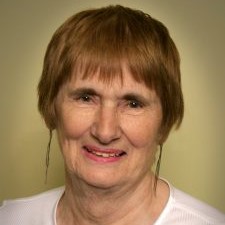
Lucy Marco has 57 years of experience in manufacturing, marketing, human resources, administration and management positions, combined with 50 years of volunteer service in over 40 community boards, advisory committees and service clubs. A recipient of many awards, Lucy is most proud of her federal Citation for Citizenship, YMCA Peacemaker Medal, Rotary Sunrise Paul Harris Fellow Award, Chamber of Commerce Outstanding Business Achievement Award and the naming of Lucy Marco Place, first as a Wilfrid Laurier University student residence and now a City of Brantford apartment building.
Abstract
The Grand River Council on Aging Is a registered charity dedicated to the development of an “age-friendly community” for all residents – from 5 to 105!
The GRCOA listens to the “voices of lived experience” and shares information with municipalities, organizations, businesses, and residents for consideration when planning changes that will impact the daily aspects of living of our children and grandchildren.
Various information methods and activities keep our older adults active, engaged and connected to ensure opportunities for health, participation and security for everyone as they age.
This panel brings together business‑sustainability experts who will reveal how companies are embedding accessible, planet‑friendly practices—from hyper‑local initiatives to nation‑wide programs. You’ll hear candid stories about the hurdles organizations face, discover inventive solutions already in play, and leave with practical tips to boost your own sustainability efforts.
Moderator: Eric Meliton, Manager of Sustainability Office
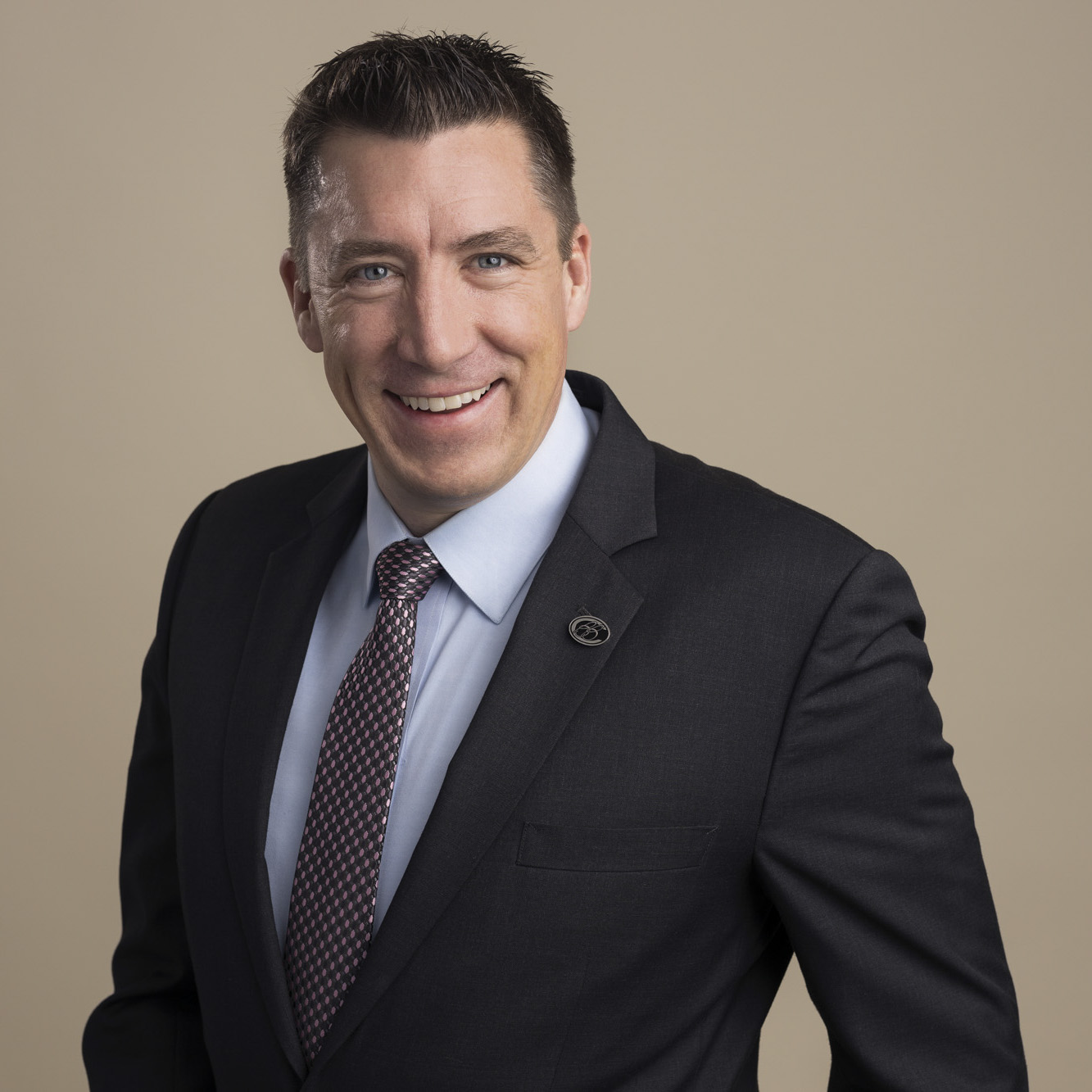
David Prang is the CEO of the Chamber of Commerce Brantford-Brant. He started his career as student president at Wilfrid Laurier University, where he supported the Laurier EcoHawks volunteers of the day! He was part of the leadership team at Laurier Brantford, growing the campus from 300 to 3000 students. In this role he was the first university staff member in Canada to chair a Business Improvement Area, helping to bridge the gaps between the growing campus and the downtown business community. He was appointed CEO of the Chamber of Commerce Brantford-Brant in 2019, and has enjoyed an active role in policy development across the Chamber of Commerce Network in Canada.
Abstract
What the obstacles business faces in Canada to becoming more sustainable? What needs to happen to encourage investment in the green economy in Canada and Ontario? Learn about how the business community is working towards sustainable goals in Canada, Ontario, and Brantford-Brant.
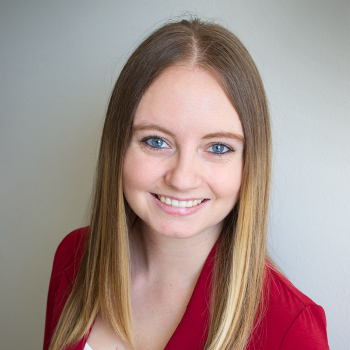
Rebecca Szczepanowski is the Supervisor, Policy and Sustainability in the Policy and Partnerships office in the Public Works Commission at the City of Brantford. Rebecca is responsible for the planning and implementation of municipal climate change priorities and implementing the Corporate and Community Climate Change Action Plans, including GHG emissions reductions strategies and goals. Rebecca holds a Master of Environment and Sustainability from Western University, a Post Graduate Certificate in Environmental Management and Assessment from Niagara College, and a Bachelor of Science in Environmental Geoscience and Geomatics from the University of Guelph.
Abstract
Climate change is a complex issue and its environmental impact will directly affect business, society, and ecosystems. Businesses on a local scale can play a large role in fighting climate change. Learn about what actions businesses can take to become more sustainable and do their part to mitigate and adapt to climate change.
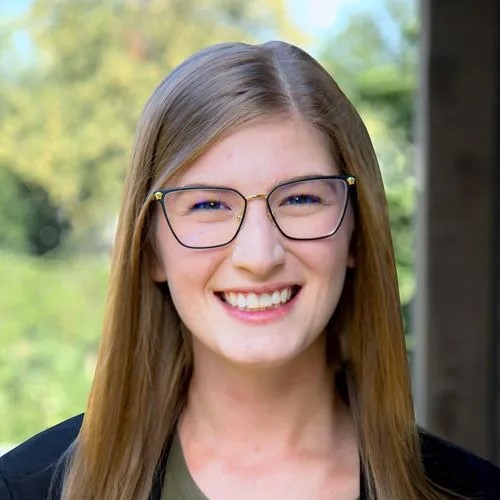
Karleigh Csordas is a customer success manager at Membership.io, a Brantford-based tech company that supports creators and educators in building thriving membership communities. Based in Brantford, Karleigh is also a passionate community organizer, small business owner, and environmental advocate. She is the founder of Sustainable Swaps, a zero-waste lifestyle business that promotes eco-conscious living through education and curated plastic-free alternatives. As the lead organizer of the Brantford Green Team, she collaborates with volunteers to implement sustainable practices at local events. Karleigh has represented the Green Party as a candidate in both federal and provincial elections. She brings a unique, action-driven perspective to sustainability, grounded in local leadership, entrepreneurial innovation, and political advocacy.
Abstract
From large local events to community clean-ups, waste diversion at public events is an often overlooked contributor to environmental impact. Discover how collaboration between citizens, municipalities, and business owners can create scalable models for sustainable events.
Karisa Downey is Manager of Economic Development, City of Cambridge. She has been working in economic development for over a decade, with experience in both rural and urban environments, and both upper and lower tier municipalities. She was awarded one of “EDCO’s Top Ten” in 2021, which identified the top ten individuals working in economic development in the province. She became a Registered Professional Planner in 2024 after completing her Masters in Planning at the University of Guelph in 2020. Karisa is currently a mentor with EDCO’s mentor program, and is a member of EDCO’s Professional Development Committee. Karisa and her family live outside of Palmerston where she enjoys coaching and playing hockey and baseball.
Abstract
The City of Cambridge has recently approved their Action Plan (2025-2029). Pillar 2 of the Action Plan is “Inspire: Quality of Place”. Learn how the City’s Economic Development division plans to make Cambridge a destination of choice by supporting features and initiatives residents, workers and visitors value. Key initiatives include playing a supportive role in placemaking and promoting a diversified development in core areas to support small business and foster a vibrant community.
This panel explores how games and immersive technologies can foster community care, enhance mental health support, and promote cognitive well-being. Featuring professors Sandra Danilovic, Jennifer Lavoie, and John E. Muñoz, this panel highlights creative, research-driven projects—from game jams that address health inequities, to virtual reality training for police in mental health crisis response, to games designed to support older adults with and without cognitive decline. Open to the public, this conversation invites the community to discover how digital tools can be powerful agents of empathy, connection, and social impact.
Moderator: Johnny Kung, Manager of Research Partnerships, Wilfrid Laurier University
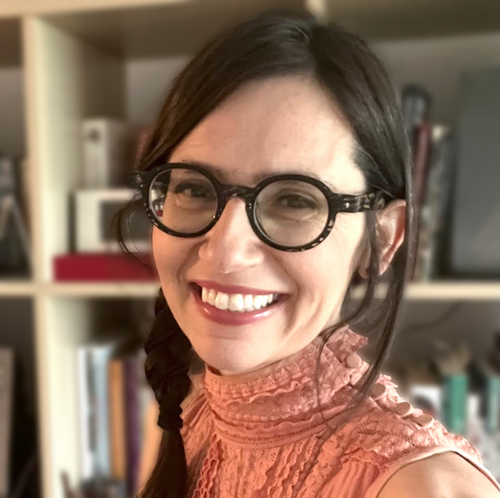
Sandra Danilovic is an Assistant Professor in Game Design and Development at Wilfrid Laurier University. With a Ph.D. in Information from the University of Toronto and a background in fine arts and filmmaking, her research uses game design to explore lived experiences with mental health and addiction. Working from an equity lens, she collaborates with high-risk and underserved communities through inclusive design and game-based research frameworks. Sandra currently leads an SSHRC-funded study on game-based storytelling to de-stigmatize opioid addiction, recently published in the Association of Computing Machinery (ACM) journal. Her books include Arts for Health: Games (Emerald Publishing) and the forthcoming Game Design Therapoetics: The Therapeutic Imagination at Play (University of California Health Humanities Press).
Abstract
A game jam is a time-limited event where developers, artists, hobbyists, and gamers come together to prototype games in response to a shared theme or design constraint. Originating outside academia, game jams emerged from the tech and game industries through grassroots movements like hackathons, DIY studios, and community-led initiatives designed to empower marginalized groups. Drawing from my book Arts for Health: Games, I explore how game jams intersect with community health and action-oriented research to expand on community-centred design practices. Rather than emphasizing traditional evaluation metrics or clinical health interventions, I position the game jam as a process-driven, inclusive research platform that values creative improvisation, social connection, collaboration, and play. As such, game jams can become humanizing forces inspiring collective care and bringing deeper awareness to health inequities affecting disenfranchised communities.
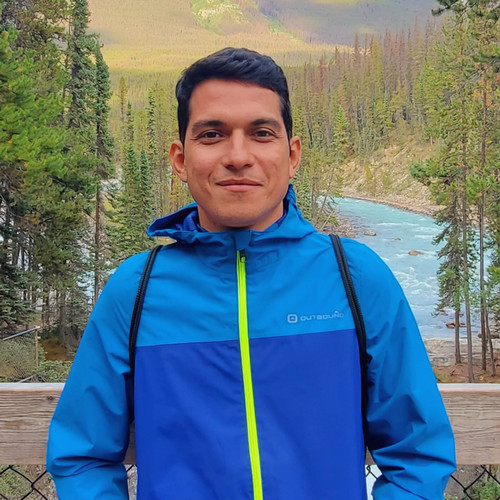
John E. Muñoz is an assistant professor in User Experience Design at Wilfrid Laurier University. John completed his PhD in Human-Computer Interaction at the Universidade da Madeira in Portugal in 2018, including a research internship at NASA Langley Research Center in the U.S. John completed a postdoctoral fellowship at the University of Waterloo, Canada, where he focused on technology-enhanced health and human performance. Before joining Wilfrid Laurier University, John worked as a UX research scientist and consultant for international tech companies, applying human-centered design and interactive technologies to create innovative solutions in digital health and user experience. John has co-designed multiple games targeting older adults involving virtual reality, floor projections and physiological interfaces for exercise promotion, physical rehabilitation and cognitive training.
Abstract
As the global population ages, promoting physical, cognitive, and emotional well-being in older adults has become a public health priority. Active Aging Through Play explores the development and impact of games for health—specifically exergames, or games that combine physical activity with interactive gameplay—designed to support older adults with and without cognitive decline. Drawing from interdisciplinary research in game design, health sciences, and human-computer interaction, this presentation showcases co-designed digital experiences that encourage movement, stimulate memory and attention, and foster social connection. These games not only aim to improve balance, coordination, and executive function, but also offer meaningful and enjoyable ways for older adults to stay active, engaged, and empowered. By leveraging playful technology, this work reimagines aging as a dynamic, participatory process enriched through innovation and community.
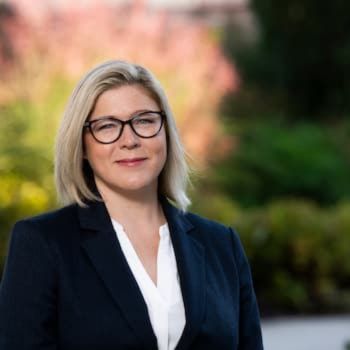
Jennifer Lavoie is an Associate Professor in the Departments of Psychology and Criminology at Wilfrid Laurier University, Ontario, Canada. She received her PhD in psychology and law from Simon Fraser University, Burnaby, BC and was a postdoctoral fellow at the Centre for Addition and Mental Health in Toronto, Canada. Jennifer conducts research focused on policing responses to people living with mental illness. She also investigates how people with mental illness and family carers perceive police encounters during crisis. Jennifer has been working for several years with a multi-perspective, inter-agency research team to develop and test the efficacy of scenario-based training for frontline police officers focused on reducing stigma, enhancing de-escalation techniques, and emphasizing relational policing. She is the lead author on the De-escalating Persons in Crisis Competencies Tool, a framework to assess de-escalation in the context of policing. She has been recognized through Laurier’s Award for Research Excellence (2017, 2020, 2023), the Society for Police and Criminal Psychology’s Wayman Mullins Award for best journal article and has been awarded over $6M in research grants since 2019. Jennifer is currently a lead investigator on a government-funded project developing and testing Virtual Reality scenario-based de-escalation training for frontline police officers.
Abstract
Virtual reality (VR) technologies are poised to revolutionize how police officers engage in realistic scenario training to prepare them for complex mental health crisis calls. The Mental Health Crisis Response (MHCR) program is a partnership between universities, police services and immersive technology industry leaders that leverages VR to enhance de-escalation competencies among frontline officers in the context of mental health crisis. Co-designed by community stakeholders composed of academics, persons with living experience, cultural safety experts, police use-of-force trainers, and mental health clinicians, this initiative is based on the concept of “relational policing” (Lavoie et al., 2022). The program is designed to train police officers to recognize signs of mental health crisis, increase bias awareness, and augment de-escalation and communication practices to contribute to safer, more humane, and more effective community interactions. The hallmark of this training is the use of realistic, immersive scenario-based simulations offering experiential learning opportunities to rehearse key competencies. This data-driven approach reflects best practices, community values, and prepares officers for real-world conditions, bridging the gap between traditional training methods and modern technology.
This panel spotlights just transitions across sustainability, reconciliation, and community resilience. Alex Latta, Margaret Ireland, and Tthets’éhk’edélı First Nation present an adaptation strategy reconnecting settlers, Dene teachings, and Mother Earth. Bryce Gunson reveals how structural inequities magnify rural Ontario’s climate vulnerabilities and outlines “just resilience” for fair adaptation. Bryan Gilvesy showcases a farmer‑delivered, nature‑based program that turns rural economies into environmental solution providers, creating significant local ecological, cultural, social, and economic lasting gains for collective land, people, and future generations.
Moderator: Melody Morton Ninomiya, Canada Research Chair and Associate Professor Department of Health Sciences
Alex Latta is Associate Professor of Global Studies at Wilfrid Laurier University. He is of Scottish and English settler descent and grew up with a strong connection to the forests and waters of his home, in Coast Salish territory on the west coast of British Columbia. After beginning his research career with a focus on Indigenous rights and extractive industries in Latin America, he has now been conducting collaborative research with Dene communities in the Northwest Territories for a decade. From his role as a researcher, he aims to support Indigenous-led stewardship and climate change adaptation.
Margaret Ireland is Resource Management Coordinator for Tthets’éhk’edélı First Nation. Environmental change has been on her mind since she heard her Elders expressing their concerns about it during her youth in the 1970s. In the early 2000s, returning after a career outside the community, she answered her Elders’ calls to work with them to respond to climate change. Her collaboration with Wilfrid Laurier University researchers is the latest in a series of studies and projects helping her community to understand climate change impacts on their wellbeing and identify strategies for adaptation.
Abstract
Tthets’éhk’edélı First Nation (TFN), a Dene community in the Dehcho region of the Northwest Territories, has seen dramatic climate change impacts in its traditional territory. Building on past efforts to understand the effects of climate change, TFN partnered with a Laurier-led research team to develop an adaptation strategy. The presentation reflects on our collaborative research as a process of building and reconstituting relationships: settler descendants with Indigenous Peoples, modern Dene with traditional teachings and worldviews, and collective humanity with Mother Earth.
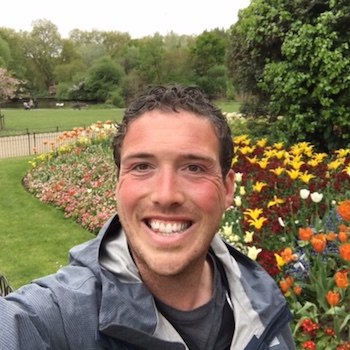
Bryce Gunson is a doctoral candidate in geography at Wilfrid Laurier University, where he also lectures and serves as a research coordinator in the Faculty of Liberal Arts. His research focuses on climate change adaptation and environmental justice in rural communities, with projects spanning maple syrup production, emergency management, nuclear waste, and non-timber forest products. Bryce has worked extensively with Indigenous communities across Canada and is a co-recipient of the 2022 Emergency Management Exemplary Service Award for research on First Nations home flood insurance needs awarded by the Canadian Federal government.
Abstract
This presentation shares doctoral research on the strengths and challenges small rural communities face in adapting to climate change. As climate impacts are most significantly felt at the municipal level, they strain already limited infrastructure, economic, and administrative capacities—pressures intensified by past policy shifts that offloaded responsibilities from provincial to local governments. This research introduces the concept of just resilience, which emphasizes the need to address systemic inequities so all communities—especially small, rural ones—can access and implement effective mitigation and adaptation strategies appropriate for all spaces and places.
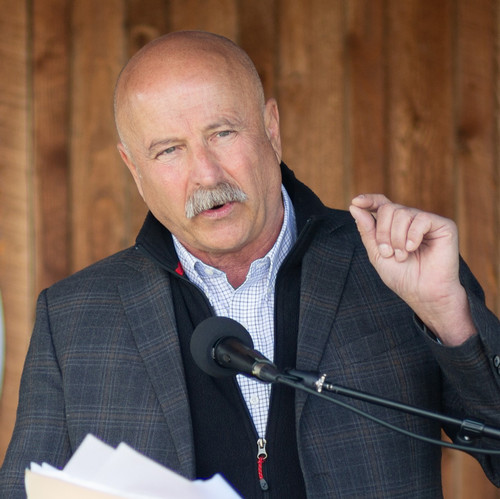
Bryan Gilvesy is Chief Strategy Officer of ALUS Canada (alus.ca), a national community-led, farmer delivered charitable program that rewards farmers to produce more ecosystem services and develops market value for those services. He is also owner of the Y U Ranch (yuranch.com), a sustainable grass based ranching operation in Norfolk County, Ontario.
After becoming involved with the ALUS Pilot Program as the third participant farmer in 2006, Bryan grew his involvement in ALUS over the next 18 years, eventually leading the program as CEO for 10 years and stewarding a concept that now effectively put net new nature on the landscape through 39 community partnerships.
Abstract
Delivering nature-based solutions to help solve the planet's most pressing environmental problems by targetting locally appropriate solutions. A description of the community based, farmer delivered program that positions rural communities as environmental soution providers with significant economic and social benefits.
The Community & Workplace Partnerships panel discussion will highlight some of our community partnerships and student placements that relate to the event themes of community connections and integration. In this panel we will showcase partners and students from the new Interdisciplinary Experiential Learning course at Laurier. Through these experiences, students connect with the community, link theory to practice, and help partners with their goals and to address challenges. Highlighting this new course and some of its partnerships, we hope to inspire continued collaboration and celebrate what students and community are doing together for mutual benefit.
Moderator: Sara Darling, Coordinator, Community Service-Learning, Wilfrid Laurier University
A lifelong Brantford resident, Lillia Dockree graduated in 2021 from Laurier Brantford with an Honours B.A. in History with a minor in Public History. Hired on at the Brant Museum & Archives as a summer student in July 2017, she spearheads the Brant Historical Society’s community outreach, as well as assisting with offering children’s programs at Myrtleville House Museum. Lillia also has a hand in many aspects of collections work: re-organization of collection spaces, digitization of archival documents and photos, research – for museum projects and community members - as well as curation of exhibits. Her passion for history extends outside of work hours as well, which can be seen in her large collection of books (historical reference and historical fiction) and through time spent visiting other museums and renaissance festivals.
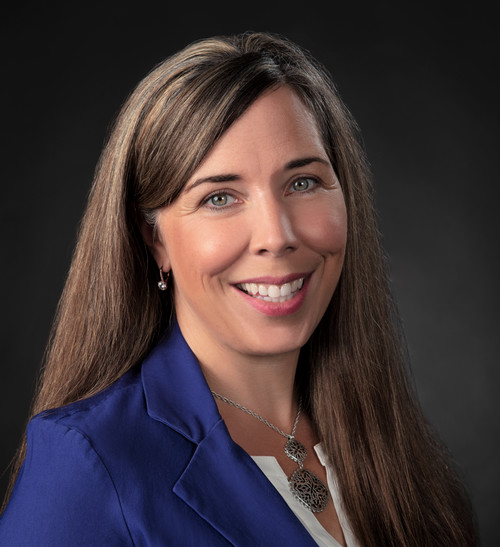
Danette Dalton is a registered Professional Planner with the Canadian Institute of Planners and brings over 20 years of diverse experience in community planning and economic development. She holds an Honours Bachelor of Environmental Studies in Planning from the University of Waterloo, along with post-graduate certificates in Economic Development and Conflict Management. She is also on track to complete a Certificate in Management and Leadership from Wilfrid Laurier University in June!
Since joining the Workforce Planning Board of Grand Erie in 2019, Danette has led many workforce development initiatives through strategic project management, collaborative planning, and innovative program design. Her ability to build strong partnerships and deliver impactful solutions has made her a trusted leader across sectors. With a career spanning municipal planning, economic revitalization, and workforce strategy, she is passionate about creating healthy, vibrant, and prosperous communities through thoughtful, future-focused development.
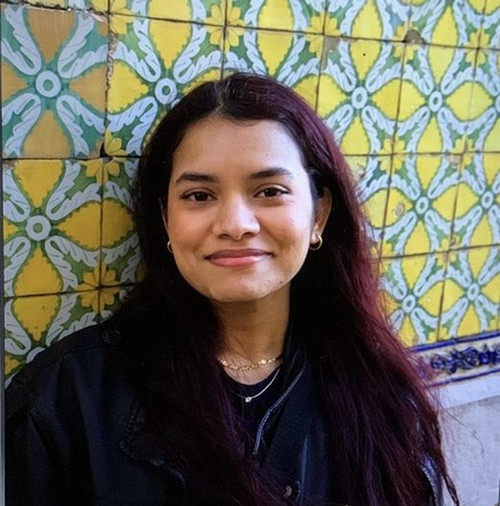
Diyani Atukoralalage is a part of the WLU/Sussex program, and has just completed the last year of a dual degree program. Diyani will be getting an Honours BA in Law and Society at Wilfrid Laurier University and already hold an LLB (Bachelor of Laws) from the University of Sussex in Brighton, UK! Diyani is particularly interested in going into business law or medical malpractice, and is currently working on the NCA exams and applying to articling positions in Ontario. Diyani also has a strong interest in non-profit legal work and hopes to pursue that in the future and ideally, travel and work internationally.
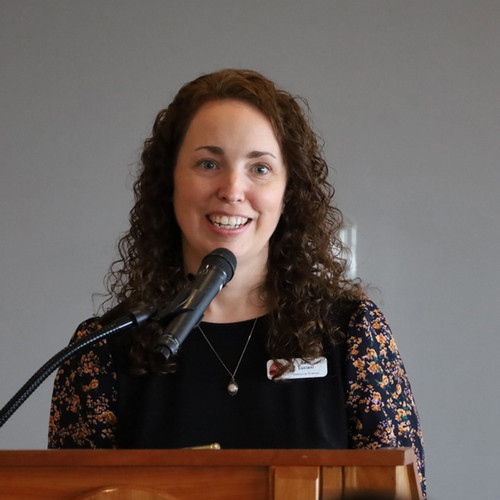
Beth Noble Luciani is the Executive Director of Brant United Way, a nonprofit organization serving Brantford, the County of Brant, and Six Nations of the Grand River.
In this role, she leads initiatives that support programs focused on keeping people safe, fed and connected to their community. Funding is targeted to food security, essential services, and programs that strengthen families. Brant United Way currently funds 30 different charitable programs, supporting nearly 50,000 people in our communities.
Beth holds a degree from The University of Western Ontario and brings a wealth of experience in community engagement and nonprofit leadership to her position, including working at Laurier. Under her guidance, Brant United Way has increased its campaign by nearly 20%.
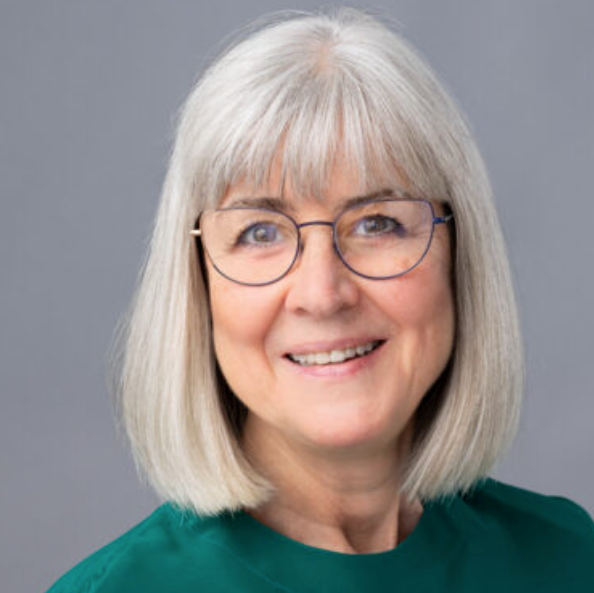
Since 2006, Rita-Marie has been the Executive Director of Lansdowne Children’s Centre, one of 21 Children’s Treatment Centres meeting Ontario’s child development and rehabilitation needs.
Born and raised in Brantford, Rita-Marie graduated from Pauline Johnson Collegiate and University of Toronto. After earning undergraduate and graduate degrees in Science and Health Administration, and the Certified Health Executive designation, Rita-Marie worked locally in health system planning, then hospital-based project management before pediatric rehab.
She and her husband, John, raised two daughters in Brantford and Brant County.
Her volunteer involvement has included governance leadership on local and provincial boards in the health, fitness and not-for-profit sectors. She has been a Rotarian since 2008, serving as local club president and at the district level around youth leadership and international exchange. Rita-Marie has served on the Brant Community Foundation Board of Directors since 2023.
Interesting aside: Rita-Marie was fortunate to spend formative time with another of today’s keynote speakers, Lucy Marco, as an organizer of her church youth group!
Storytelling for Change: Crafting Narratives that Connect and Inspire
This panel brings together writers and creatives who explore the power of storytelling and poetry to drive meaningful connections and inspire change in both business and environmental contexts. Alison Fishburn will discuss how businesses can use narrative techniques to build brand identity, engage audiences, and simplify complex ideas. Lishai Peel will share her expertise in the arts and culture sector, focusing on the role of storytelling in organizational leadership. Finally, Jaclyn Desforges will examine how community poemmaking can serve as a site for climate revolution, exploring how poetry can transform our relationships with the natural world. Together, these speakers will demonstrate the transformative potential of stories in shaping our communities and businesses.
Moderator: Kathryn Carter, Full Professor of English and Interim Co-ordinator of User Experience Design and Creator of the Game Design and Development Program
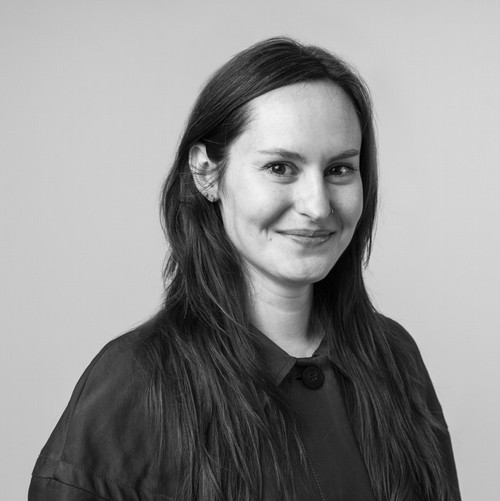
Alison Fishburn is a Pushcart-nominated writer, award-winning playwright, performer, and community organizer living in Paris, Ontario. Her writing has been published by Longreads, The Outline, and SAND Journal. Her full-length plays have been produced in New York City, Brooklyn, and Hamilton, Ontario. She has an art degree from Brooklyn College and an MFA in creative nonfiction from University of King’s College. In 2022, she launched Riverside Reading Series, a non-profit organization supporting writers of all ages and professional levels. In 2024, she opened Riverside Bookshelf, an independent bookstore in Paris. She teaches creative writing at Wilfrid Laurier University.
Abstract
Discover how the timeless art of storytelling can transform business communication. Narrative techniques build brand identity, engage audiences, and inspire action. Learn how to apply these techniques to create emotional connections and simplify complex ideas.

Lishai Peel is a Hamilton based writer, spoken word artist and organizational leader with over a decade of experience working in the arts and culture sector. Her writing has won awards with The Malahat Review, The Vancouver Writers Fest and The Writers’ Trust of Canada. Her essays and poems have been published by Book*hug Press, Room Magazine, Lilith Magazine, Hey Alma, Middleground Magazine, Arc Poetry Magazine, The Malahat Review, Illanot Review and others. Lishai has an MFA in creative writing from Guelph University and currently works as the Co-Executive Director of Moms Together, a lobby group for Canadian moms. She also serves as the principal of a private elementary school. In 2023, she was named the City of Hamilton's inaugural Poet in Place, a role she continues to hold.
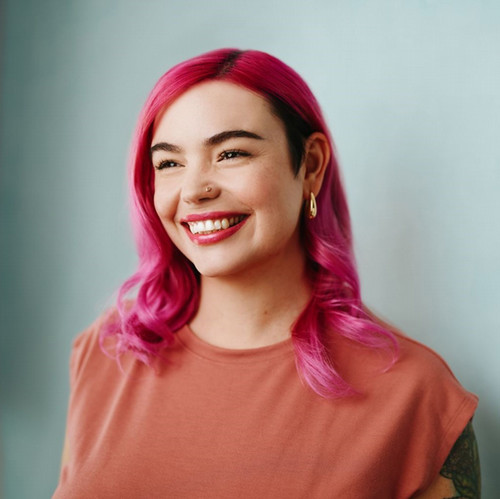
Jaclyn Desforges is the queer and neurodivergent author of Danger Flower, winner of the 2022 Hamilton Literary Award for Poetry, and Why Are You So Quiet?, a picture book selected for the 2023 TD Summer Reading Club. Her forthcoming works include the short story collection Weird Babies (Porcupine's Quill Press, 2026) and her first novel, Eyelash Person, both generously supported by the Canada Council for the Arts. She teaches poetry at Wilfrid Laurier University in Brantford.
Abstract
Our climate crisis isn't just material—it's imaginal. This presentation examines how poetic techniques can help dismantle the harmful human/nature binary that underlies environmental destruction. Jaclyn will explore community poemmaking as a transformational cocoon in which we can co-create embodied, experiential shifts in perception. By de-centring outdated narratives and writing new ecological stories, poetry offers communities practical pathways for reimagining their relationships with a changing world.
Building Inclusive Communities: Housing, Culture, and Advocacy for a Better Tomorrow
This panel addresses critical community issues that intersect housing, culture, and social advocacy in Brantford and Brant County. Katie MacDonald and Nicole Callander will discuss the urgent need for sustainable, supportive housing solutions for individuals with disabilities, highlighting their collaborative efforts to create inclusive, community-integrated housing options. This is followed by Wiktor Kulinski’s strategic analysis of the 2024 Culture Basic Survey, which provides valuable insights into the state of arts, culture, and heritage in the region, guiding future cultural policy and investment. Finally, Tara Buchanan, along with the team from The Bridge Brant, will share their journey of advocating for the 2sLGBTQ+ community, from grassroots beginnings to fostering self-sustaining organizations such as Worqshop and Brantford Pride. Together, the panel offers a comprehensive exploration of community-driven solutions to address housing disparities, cultural development, and social inclusion.
Moderator: Laura Almeida, Project Coordinator Social Development and Policy, City of Brantford
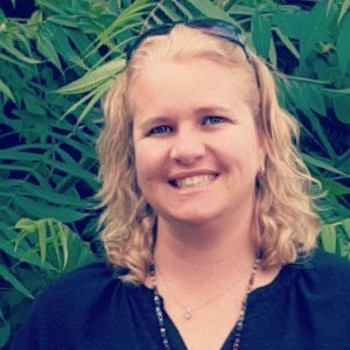
Tara Buchanan
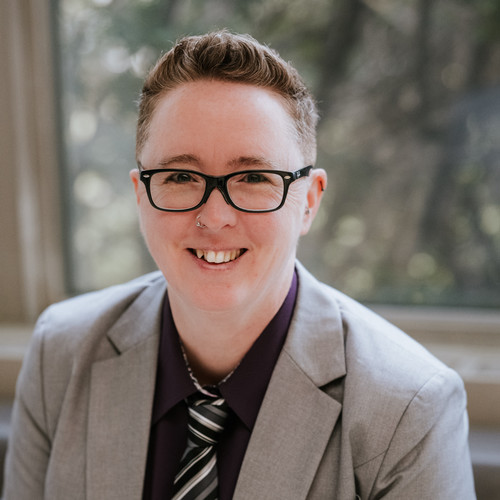
Christine Windman
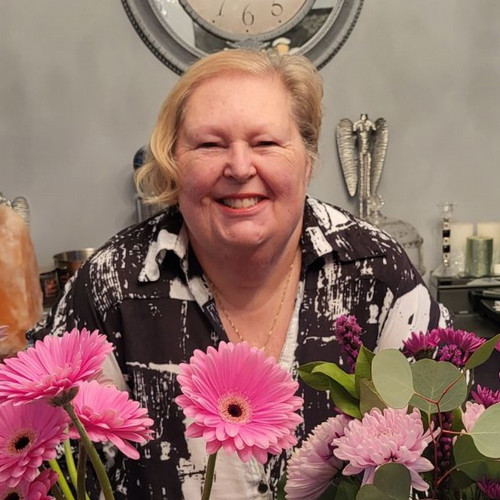
Jacqui Fendley
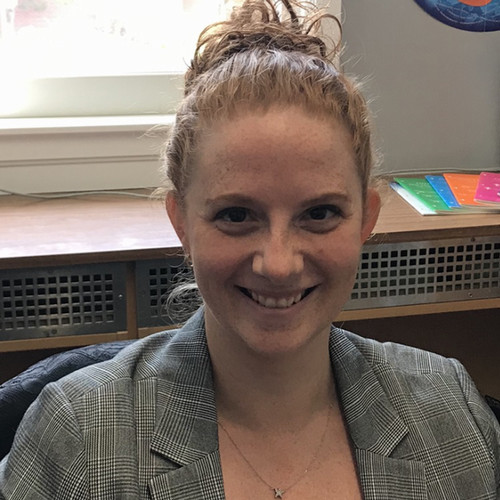
Pam Malins
All born out of the Bridge Brant: Tara Buchanan remains the Chair, who supports monthly meetings that bring together community stakeholders with common goals, of which Pam Malins is a general member; Christine Wildman heads Worqshop - that provides education - and Jaqui Fendley heads Brantford Pride, both of which are organizations that originated from The Bridge and are now self-sustaining.
In this presentation, speakers will share the journey of The Bridge Brant, a grassroots organization formed to support the 2sLGBTQ+ community in Brantford and Brant County. As the organization grew, smaller groups like Worqshop (focused on education) and Brantford Pride (focused on community engagement and visibility) emerged. The Bridge Brant remains a network of dedicated individuals working towards inclusive spaces, systemic change, and connection-building. With a new strategic plan, they aim to increase visibility through their website, special projects, and social events, including Brantford Pride’s annual Pride in the Park.
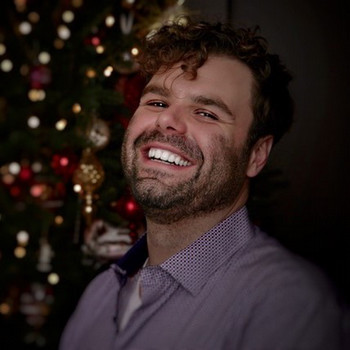
Wiktor Kulinski is Chair of Grand Culture, the arts, culture, and heritage council for Brant Region, where he leads research-driven initiatives to advance cultural policy and infrastructure. He is the principal investigator of the Culture Basic Survey, a foundational study examining systemic gaps and opportunities across the sector. Trained in anthropology and performance studies, Wiktor also works in strategic research and innovation consulting, with a focus on cultural systems, institutional change, and long-term planning.
Abstract
This presentation offers a strategic analysis of the 2024 Culture Basic Survey, a mixed-methods research initiative led by Grand Culture to explore how residents and sector leaders experience and understand arts, culture, and heritage in Brant Region. Drawing on over 200 public responses and in-depth ethnographic interviews, the analysis focuses on major thematic threads that emerge across the data—revealing a collective understanding of the sector’s current state, perceived value, and future potential. It culminates with insight-driven direction for cultural policy, investment, and innovation.
Cristin Ladner is Executive Director of Community Living Brant. In this session, Cristin Ladner will set the stage by spending the first 15 minutes highlighting the housing crisis faced by individuals with disabilities and those who are precariously housed. She will explore the historical role of Community Living Brant (CL Brant) in providing support for housing, and how the organization’s efforts have been increasingly compromised by a lack of funding and the growing issue of life-long waitlists. Cristin will also discuss the profound human toll this crisis is taking on individuals and their families, shedding light on the urgent need for sustainable solutions.
Nicole Callander is a dedicated advocate for individuals with disabilities and a member of the Steering Committee for New Paths Brant, a grassroots initiative working to create sustainable and supportive housing opportunities for individuals living with disabilities in Brantford and Brant County. Nicole has a deep personal commitment to improving the lives of individuals with disabilities and their families, and she has played an integral role in advancing the organization's vision of fostering inclusive, empowering housing solutions.
Abstract
In this session, Katie McDonald and Nicole Callander from New Paths Brant will provide an overview of the grassroots organization and its work to date. New Paths Brant is a group of thirty family members and caregivers who have come together to create sustainable and inclusive housing opportunities for individuals with disabilities in Brantford and Brant County. Our vision is for people of all abilities to live in homes where they feel included, valued, and empowered to fully engage in their community. We will highlight the opportunities available in the community, share the barriers we’ve encountered, and discuss the critical partnerships needed to achieve our vision. This presentation aims to raise awareness about the housing crisis faced by individuals with disabilities and the need for a community-driven, collaborative approach to address this issue.
Moderator: Peter Smith, Founder and Creative Director of Canadian Centre for Rural Creativity
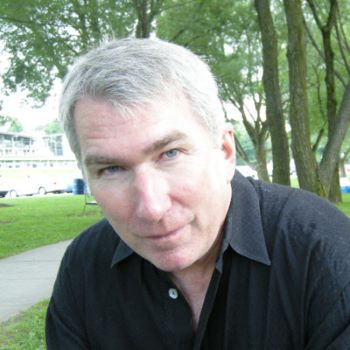
Peter Smith is Founder and Creative Director of the Canadian Centre for Rural Creativity.
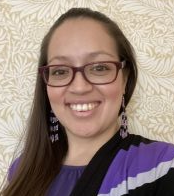
Jaquie Jamieson began her career in Tourism as a summer student at Chiefswood National Historic Site in 2011. Since then, she has worked in various roles at historic and cultural sites within Six Nations of the Grand River. Jaquie started working full time with Six Nations Tourism in 2015. Throughout her career Jaquie has found a passion for tourism and sharing her culture with visitors, entrepreneurs and partners. Jaquie has been a mentor for the Skode program offered to Indigenous Entrepreneurs through Indigenous Tourism Ontario and the Tourism Innovation Lab. Jaquie also sits on the board for the Hamilton Halton Brant Regional Tourism Association and on the Indigenous Cultural Authenticity Integrity Committee for Indigenous Tourism Ontario among other boards. Growing Indigenous tourism in her region and sharing her knowledge with visitors is a strength and a goal that she continues to strive towards.
Abstract
Learn how to build respectful and meaningful relationships with Indigenous communities through the lens of Six Nations Tourism. This session highlights partnerships and how to engage in ways that foster long lasting relationships.
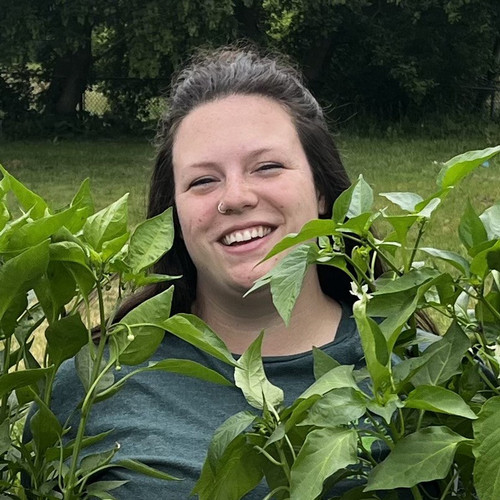
Taylor Edwards is the Greenhouse and Learning Centre Coordinator at Equal Ground Community Gardens, where she leads food growing education and hands-on programs across Brantford and Brant County. Equal Ground supports over 31 community gardens and 70+ residential growers, offering free, inclusive opportunities for people of all ages and abilities to grow food and connect with their neighbours. Through the new Greenhouse and Learning Centre, Taylor and the EGCG volunteer team help create welcoming, accessible spaces to learn, gather, and grow.
Abstract
Taylor Edwards of Equal Ground Community Gardens shares how this small but mighty organization in Brantford is transforming the way communities connect with food and each other. Through community driven food gardens and the newly opened Greenhouse and Learning Centre, Equal Ground is building inclusive, sustainable models of food education and growing opportunities. But cultivating community is not without its challenges. Volunteer fatigue, limited resources, and the ongoing work of inclusion and accessibility require constant care and creativity. Taylor will speak candidly about these realities while exploring how cross sector partnerships between grassroots groups, municipalities, service providers, and academic institutions are essential to keeping community led initiatives not just alive, but thriving. This presentation offers a 'grounded', practical look at what it really takes to grow food and community, and why the future of sustainability relies on strong local relationships.
Bridging Movements and Ideas: Empowering Change through Advocacy, Education, and Dialogue
This panel explores the intersection of grassroots social movements, free speech, and educational empowerment through a series of thought-provoking presentations. Stuart Schussler will discuss the challenges and strategies of connecting students with dynamic grassroots organizations at the forefront of social change, highlighting the importance of building trust and capacity. Tamara and Leanne Laur will present Power of the V: Sisters Rising Together, a youth-led initiative that empowers young people through intergenerational mentorship, using mindfulness and leadership development to foster resilience. Finally, Holly Gibbs will introduce the principles of Universal Design for Learning (UDL), focusing on how inclusive teaching practices can reduce barriers to learning and create more accessible, equitable educational environments. Together, these presentations offer valuable insights into how advocacy, education, and respectful dialogue can drive social change and build stronger communities.
Moderator: Anh Ngo, Associate Professor, Social Work
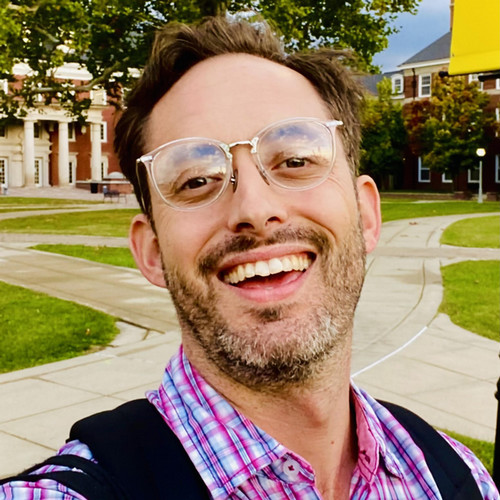
Stuart Schussler is an Interdisciplinary Postdoctoral Fellow at the University of Waterloo. He is a scholar of social movements, researching how professors are able to connect their students with the dynamic grassroots organizations at the forefront of social change. Stuart recently translated Jerome Baschet’s book “The Zapatista Experience: Rebellion, Resistance and Autonomy” (AK Press). Stuart previously taught undergraduate study abroad programs in Cuba on agroecology and international solidarity, and in Chiapas, Mexico on the Zapatista struggle for Indigenous autonomy.
Abstract
Social movements make history, and community organizations are at their heart. Yet the very characteristics that create these groups’ dynamism – their inclusive, volunteer membership, their flexible structures – often lead universities to find them messy or even risky. How to expose students to the crucial role of grassroots organizations, in a way that adds capacity to their work rather than draining it? It requires the hard work of building trust with grassroots organizations and creatively approaching institutional openings – all so we teach students how to make social change in these troubling times.
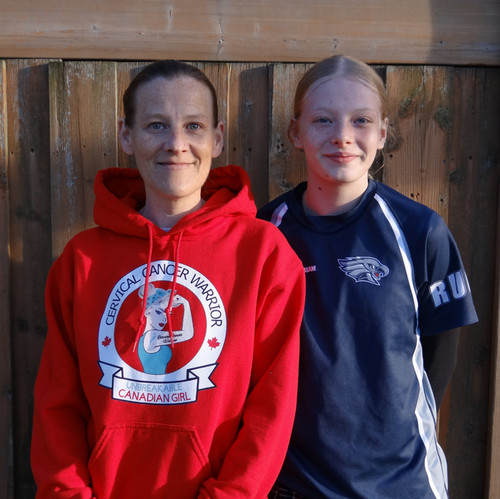
Tamara and Leanne are the founding duo behind *Power of the V: Sisters Rising Together*. Tamara’s passion for women's health began at age 9, running her first school fundraiser for her Aunt Leanne after a cervical cancer diagnosis. Together, they transformed that spark into a mentorship-based youth movement. Their shared journey weaves through personal struggle, divorce, school detachment, and illness, using those experiences to empower mindful youth leadership. Their approach blends generational wisdom with fresh energy, creating space for healing, purpose, and community.
Abstract
Power of the V: Sisters Rising Together, is a youth-led initiative supported by intergenerational mentorship, rooted in a real-life family story of navigating cervical cancer. Built from a high school passion project and shaped through lived experience, the program uses mindfulness, purpose-building, and community connection to engage young people in meaningful causes. This presentation will explore how integrating emotional support and practical leadership guidance can foster resilience, especially in youth navigating fractured school experiences, parental divorce, or post-pandemic detachment.
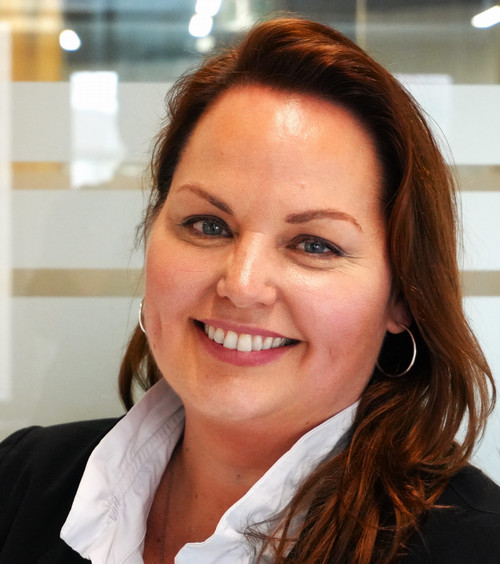
Holly Gibbs is a Manager & Educational Developer in Teaching Excellence & Innovation as well as Contract Teaching Faculty in the Faculty of Arts, Wilfrid Laurier University. In her roles, Holly practices inclusive teaching and works with faculty and peers on professional teaching development that centres and advances students’ equitable access to learning and academic success.
Abstract
This presentation will introduce participants to principles of Universal Design for Learning (UDL) and how they can be implemented to reduce barriers to learning in classrooms in higher education. Participants will be invited to think about barriers to inclusion in their own contexts and ways that they could increase accessibility and equity in their work in the classroom or community through adopting the UDL principles in practice.
Come and visit the demos preapred by this group of research scientistis in User Experience Design conducting research the intersection of human physiology and digital interaction, exploring how our bodies and minds connect with technology to create more immersive, responsive, and impactful experiences. We will have virtual reality games, wearable sensors and fun demos to try.
The power of seeing someone be unapologetically Queer and celebrate their identity, gives others the freedom to do the same. This goes for anyone on the 2SLBTQ+ spectrum, questioning folks and allies.
Queer-centered spaces and events, show that it’s not only ok to be different, it’s encouraged. Safe and celebratory spaces can promote authentic self-expression for everyone involved, leading to a large ripple effect across an entire city and beyond. This panel will feature three 2SLGBTQ+ community organizations: Brant Pride, Fruit Salad and Queer Joy Events. They will speak to why they started their organization, who inspired them and what their events do to promote authentic self-expression.
Moderator: Reba Joy, Founder of Queer Joy
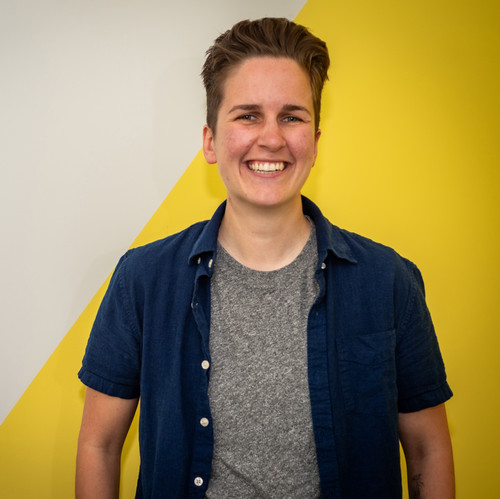
I'm Reba Joy (they/them), I started up Queer Joy Events in 2023 after moving to Brantford and noticing a lack of 2SLGBTQ+ spaces. I started with a games night during Pride month and have since hosted 20 events, partnered with 10 different local businesses and have raised over $2000 for Queer-focused charities.
I am passionate about creating events that delight and provide opportunities for people of all ages to be silly. Whether it’s through games, improv, karaoke or drawing dinosaurs wearing hats, I aim to give people space to get creative, express themselves authentically and act like a kid again.
Follow us @QueerJoyEvents on Instagram to see what we have coming up next or email us at queerjoybrantford@gmail.com if you would like to collaborate on a future event.
Abstract
Our organization hosts events that invite everyone to be silly, creative, and fully themselves. Whether it’s karaoke, game nights, or making paper bag puppets, we use playful activities to break the ice and help people connect with others in the community.
We also offer free monthly events like Queer Joy Climbs, Queers with Beers, and Saturday Strolls—low-pressure, welcoming spaces where queer folks can show up just as they are.
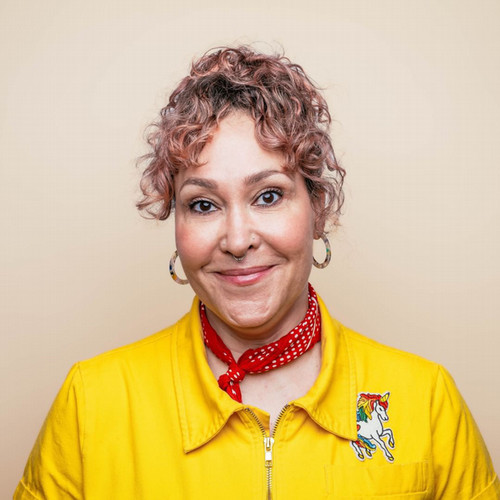
Hi Hi! I’m Sarah B! {she/they} I am the primary dreamer behind Fruit Salad, Inspired by Montreal’s Salade de Fruits and started in August 2021, Fruit Salad is a community organization that aims to respond to the lack of spaces dedicated to queer & questioning women, lesbians, trans masc, trans femme and gender non-conforming folks. Queer women, trans and non-binary folks are often overlooked in the gay community and left without places to gather and connect. The mission with Fruit Salad is to host events that foster connection and create and build a thriving, safer space community.
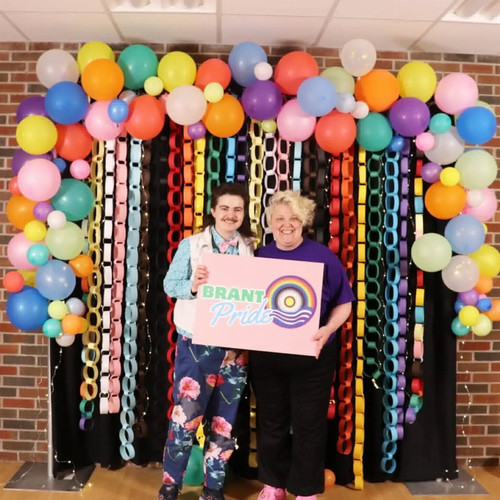
Mabe Kyle is a disabled queer white settler who lives on their family’s farm on Anishnaabe, Haudenosaunee, and Attawandaron territory along the Haldimand Tract. They are a creative professional with a passion for healing and self expression who has practiced and honed their skills in six countries. With a strong foundation in social justice and leadership experiences, their open mindedness and active engagement in continued learning, enables them to have a unique perspective to problem solving and the development of communities. Mabe is currently an Expressive Arts Therapist in training and a peer support worker in practice.
Rubyyy Jones is creator, curator and Creature of the Night! Originally from Paris, Ontario, Rubyyy Jones is a they/them Queer Femme who lived and working in London, England for the last 15 ish years - making waves in theatre, nightlife and art across the UK and Europe - before returning to Brant to continue the same provocative and poignant shenanigans. An artist who works in the body and the bawdy, Rubyyy Jones is one of the roots of the Queerlesque movement, was featured in the Sunday Times Magazine for their work in feminist theatre and has a passion for: expanding knowing, diving deep into evocations and engaging community.
Abstract
Co-chairs of Brant Pride, Mabe Kyle and Rubyyy Jones, share thoughts and examples of their process and practices in disrupting, reframing and expanding Pride celebrations and 2SLGBTQIA+ engagement.
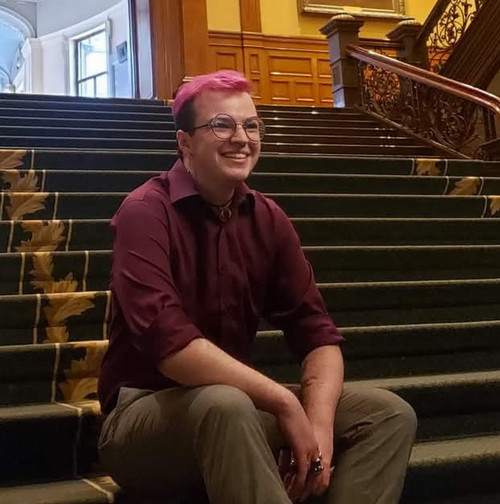
Nathan R. G. Barnett (he/him) is a queer, disabled, trans man and white settler living on the land traditionally cared for by the Haudenosaunee, Anishnaabe, and Neutral Peoples, and covered by the Haldiman Treaty, now called Waterloo, Ontario. Currently, Nathan is a PhD student at Wilfrid Laurier University in the Social Work program, exploring the lived experiences of queer masculine youth through creative writing.
Abstract
Recognizing the important roles schools play as both sites of discrimination and affirmation for LGBTQ+ students, I sought to understand how schools and policy writers can use identity-based language to send signals of “microsupports” to diverse LGBTQ+ students.
This panel brings together presentations by three different Brantford-based professional dance artists- Paromita Kar, Sumedha Mongia and Pooja Sathe-Kulkarni. These three artists have navigated sustainability in their professional dance careers through various navigational strategies- from traversing Middle Eastern and Central Asian dance forms to exploring various dance idioms within the South Asian mosaic of dances as well as community-based work through dance, to finding guidance and support from Ontario’s dance community and maintaining practice in the traditions of classical Indian dance forms. Each of these artists have a distinctive and unique journey through their dance careers in Ontario as first generation immigrants to Canada, and in this panel, they share some of the pathways they have taken in order to achieve sustainability in the professional creative arts industry.
Moderator: Amy Brandt, Community Initiatives Coordinator, City of Brantford

In this presentation, Paromita Kar, a professional dancer and choreographer, discusses how she achieved sustainability in her artistic career through shifts in her dance practice. Originally trained in classical Indian Odissi, her move to Canada led to incorporating Central Asian and Middle Eastern dances, influenced by her exposure to diverse artists in Ontario's cosmopolitan cities of Toronto, Hamilton, and Brantford. Now the Artistic Director of Ensemble Topaz, she shares how her engagement with these communities and master teachers has shaped her creative journey and professional success, supported by various arts councils.

In this presentation, dancer and community worker Sumedha Mongia shares her artistic journey, from classical Indian Odissi to Bollywood, folk, and creative dance. Her return to Odissi in Canada allowed her to reconnect with her cultural roots and deepen her community engagement. Sumedha discusses how she blends traditional and contemporary dance styles to foster inclusivity and create meaningful connections in diverse communities, both in India and Canada.
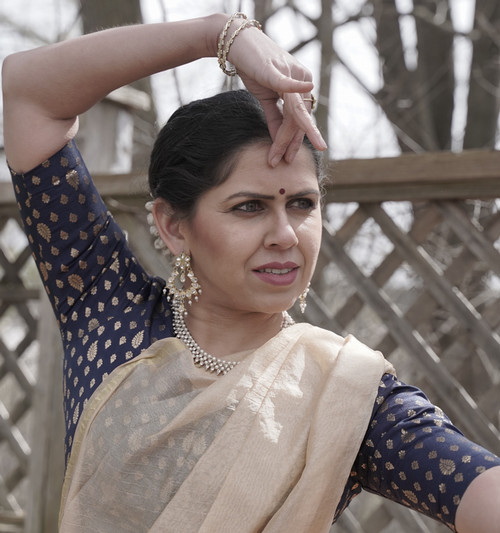
Pooja Kulkarni, artistic director of Mudra School of Dance, moved to Canada from India 17 years ago. In this presentation, she shares her journey as a Kathak dancer navigating a new arts landscape. She discusses the support from the local South Asian arts community that inspired her to open her dance school, fostering a space for culture and tradition. Pooja also explores how she maintains Kathak’s classical practice in Canada and expands access to Indian classical arts in communities like Brantford. Her journey bridges cultural, generational, and artistic gaps.
This panel explores the intersection of identity, mental health, and community support through collaborative approaches in addressing the needs of diverse populations. Presenters will discuss tailored mental health strategies, community-based research, and inclusive programming aimed at improving the lives of marginalized groups in Canada. Topics include mental health support for Afghan newcomers, the partnership between academic and community organizations to support pregnant and parenting youth, and the role of research in shaping community wellness programs.
Moderator: James Popham, Chair of the Criminology Program, Laurier Brantford
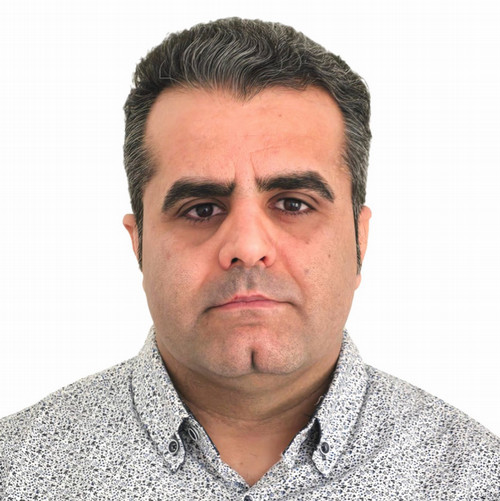
Hadi Rasooli is a seasoned mental health professional with over a decade of experience in psychiatry and community mental health. Originally from Afghanistan, he was instrumental in establishing counseling departments at Kabul and Herat universities, where he led initiatives to hire and train psychologists, develop resources, and connect services with the needs of local communities. He also co-founded the Afghan Psyche Mental Health Organization, spearheading projects to promote mental health awareness and reduce stigma. After moving to Canada in 2022, Hadi has focused on creating culturally sensitive mental health programs to support newcomers. He currently works in resettlement and serves as a visiting researcher in the Faculty of Social Work at Wilfrid Laurier University, where he contributes his expertise to enhance mental health services for refugee populations.
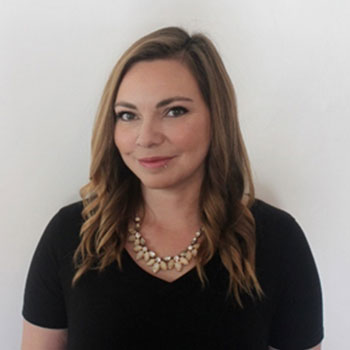
Lauren O'Neill is a master's student in Community Psychology with the IIPW Research Group at Wilfrid Laurier, interested in social determinants of health as well as researched-based program and policy improvements. Her thesis work explores the knowledges, attitudes, and practices of social workers toward FASD.
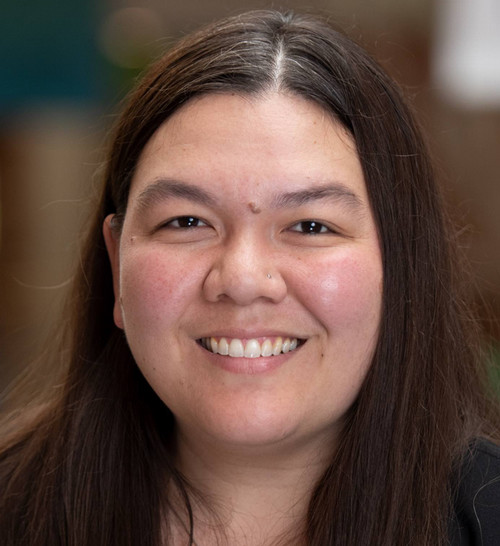
Melody Morton Ninomiya is a faculty member in the Department of Health Sciences at Wilfrid Laurier University, holds a Tier 2 Canada Research Chair (CRC) in Community-Driven Knowledge Mobilization and Pathways to Wellness, and leads the IIPW Research Group.
Abstract
This presentation shares a collaboration between the Ontario Association for Young Parent Agencies (OAYPA) and graduate students from Laurier’s Indigenous and Interdisciplinary Pathways to Wellness (IIPW) Research Group. Together, they co-developed research on best practices for supporting pregnant and parenting youth (PPY) in Ontario through a rapid review, environmental scan, and mixed-methods study. Graduate students engaged in all phases, gaining experience in community-based research. Reflections highlight how trust, reciprocity, and shared decision-making enriched learning and led to actionable insights to better support and advocate for PPY.
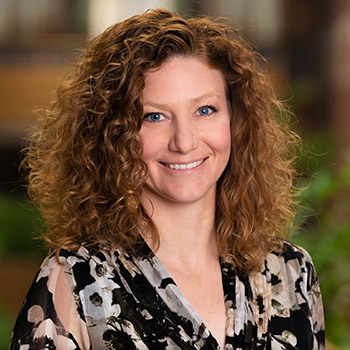
Alanna Harman is an Associate Professor in the Kinesiology and Physical Education Department at Laurier. As Executive Director of the Sun Life Centre for Healthy Communities (CHC), she guides the direction of the Centre.
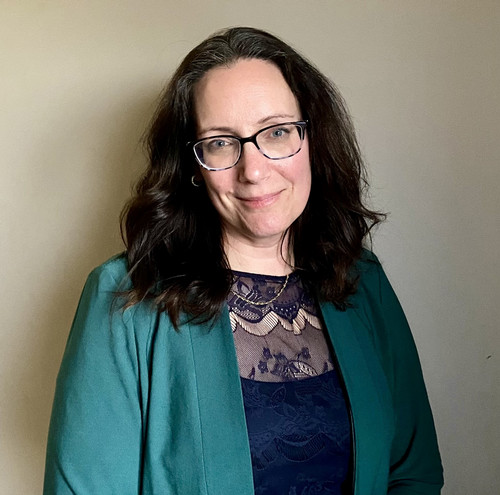
Amy Gayman is the Manager of Sun Life CHC. In this role, she oversees the coordination of all programming.
Abstract
Sun Life Centre for Healthy Communities (CHC) is a research and community outreach organization housed in the Department of Kinesiology and Physical Education at Laurier that believes in the power of healthy living to enhance and empower members of our community. The Centre conducts and supports research to better understand and address gaps in the community relative to active, healthy living and holistic wellness. This presentation will discuss the impact of evidence-based research on Sun Life CHC’s efforts to provide sustainable, inclusive programming that reduces barriers and meets the needs of the diverse communities we serve. Sun Life CHC's free community programs, Active Integration, Movin’ & Groovin’, and Body Breaks, will be highlighted as examples of how academic research can be leveraged to meet community needs.
Since its launch in 1999, Laurier’s Brantford campus has transformed from a university initiative aimed at increasing accessibility to a vibrant, integral part of the community. Over the past 25 years, Laurier has become an anchor institution, driving downtown revitalization and creating opportunities that benefit not only students and faculty but the broader community. The Inspired Community, Real Impact report showcases how the university has positively impacted Brantford through accessible infrastructure, spaces, careers, and programming.
This panel will feature highlights from the report, followed by a discussion with three groups that have benefited from collaborations with Laurier’s campus resources, including the podcast studio, LaunchPad/StartUp Lab, and faculty researchers. The session will explore the university’s role in fostering community growth and providing resources that support innovation and development.
Moderator: Beth Gurney, Laurier Communications & Community Engagement
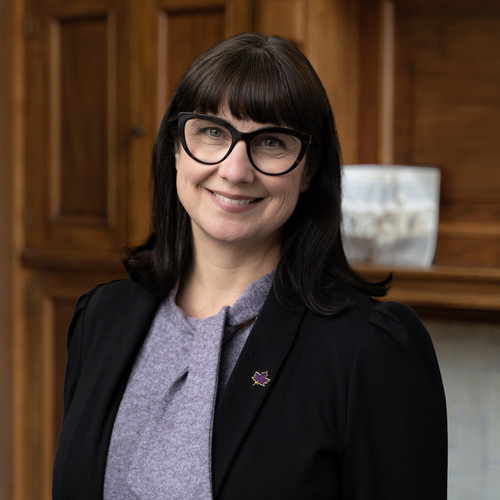
As Director of Communications and Community Engagement at Laurier’s Brantford campus, Beth Gurney leads an award-winning team of communication, event and project professionals who operate at the nexus of campus and community. Prior to joining Laurier in 2015 she held positions at a boutique public relations, communications and advertising agency, in municipal administration, and as a community news editor. She has volunteered with several not-for-profit organizations including the Order of Wilfrid Laurier-recipient Grand Valley Educational Society.
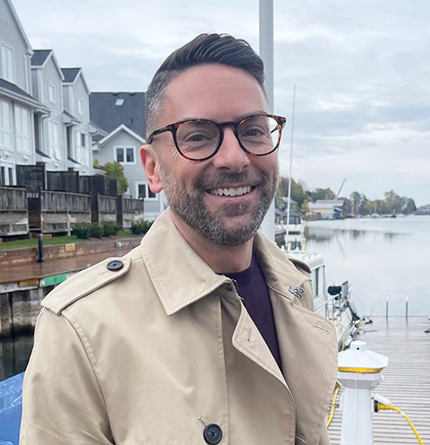
Brett Walther is the communications officer at Laurier's Brantford campus. A seasoned storyteller with 20 years of multi-platform publishing experience, he's held senior editorial positions at Reader's Digest Canada, Canadian Living and Style at Home, and was a regular guest expert on CTV's The Marilyn Denis Show. He is a graduate of Western University and Humber Polytechnic, and has been driven by a passion to share inspiring, uplifting stories since his days as a student reporter. When he's not writing, he's flexing his green thumb in the back yard of his Brantford home.
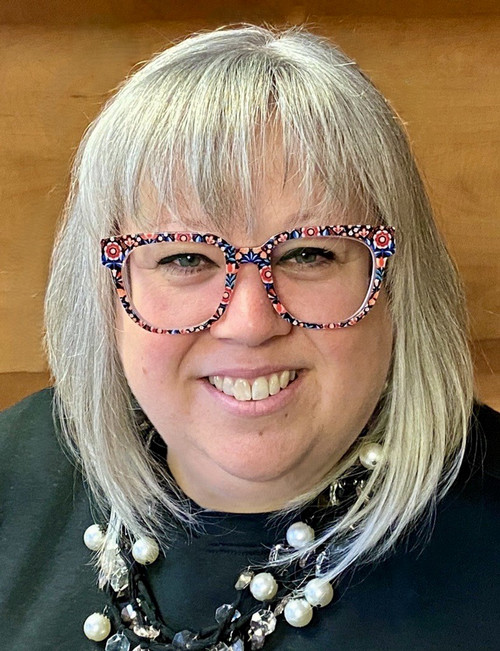
Karen Bulmer has worked in the field of child welfare for over 20 years, with the most recent years as a Service Manager with the Child Development Unit. Karen is also a cohost of “The Messiness of Parenting” podcast - recorded here in the Laurier podcast studio. Karen is an avid reader, crafter and podcast listener.
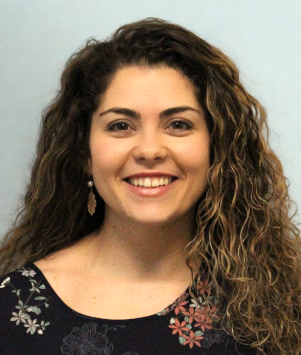
Michelle Drake has been part of the Crossing All Bridges Learning Centre (CABLC) team since 2014, taking on the role of Executive Director in 2022. She played a pivotal role in the development and success of CALB’s social enterprise, Shredding Barriers. A proud Laurier graduate, Michelle blends academic achievement with a passion for community-focused leadership. She is driven by a commitment to delivering high-quality, inclusive programming that positively impacts participants and their families.

Avery Moore Kloss is the founder of Folktale Studio and has been Podcaster-in-Residence at Wilfrid Laurier University since 2019. She’s also a contract faculty member in the Digital Media and Journalism program. An award-winning journalist and documentarian, she hosts Grown Up with Avery Moore Kloss, a podcast for anyone who still doesn’t know what they want to be when they grow up.
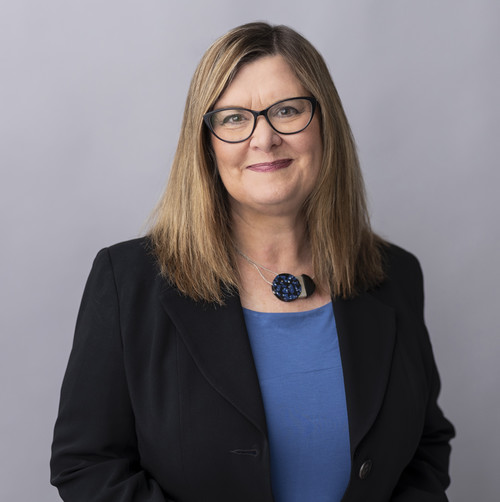
Anne Marie Peirce, Executive Director of the Brant Community Foundation, is a not-for-profit leader with 25+ years in fundraising and advancement. She honed her craft in healthcare philanthropy, post-secondary education, and community foundations, including as President & CEO of the Community Foundation of Mississauga. Currently she supports long-term community vitality by investing donor-supported funds in perpetuity, providing important grants to organizations in Brantford, the County of Brant, Six Nations of the Grand River, and the Mississaugas of the Credit First Nation.
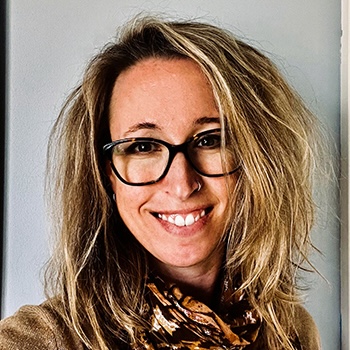
Alexis Buettgen is a community-engaged researcher, educator, and advocate, with over 15 years of experience in community-based research, health and social services, academic institutions, and activist organizations. She has dedicated her career to advancing knowledge, practice and policy in the areas of social and climate justice; social, political and economic inclusion; community capacity and coalition building with a particular interest in disability studies and community psychology. Her current research focuses on disability inclusion in the green economy and bridging the gap between academic knowledge and climate action through fieldwork carried out at local, national, and international levels.

Noah Abrahamse is an accomplished Alto Saxophonist, band leader and composer/arranger based in Toronto, Ontario, Canada. Noah received his Bachelor of Music Performance from Humber College where he was a two-time award winner of the Kenny McLean Memorial Scholarship. Noah specializes in Latin and Jazz music and has been hailed by titans such as Hilario Duran, Laura Fernandez and Joaquin Nunez Hidalgo.
Noah released his debut studio Latin Jazz album “Dias Latinos” with his band, the Mumbo Jumbo Combo, in July 2024. The album swiftly made its way through the airwaves around the world, where it is being played on multiple jazz radio stations. Raul Da Gama (Latin Jazz Net) described Abrahamse as “…a prodigiously gifted musician of whom much will be surely expected in the near and far future.” DJ El Chino (International journal, Solar Latin Club) describes the album as “a worthy and epic debut, one of the best productions of the year.” Abrahamse’s music is indicative of the influence of his mentors, coupled with a unique and vibrant style of his own. He merges the rhythms of Cuba and Latin America with the melodies of Jazz tradition to create music that is complex, yet relatable.
Featuring Paromita Kar, Sumedha Mongia, & Pooja Sathe Kulkarni
Efforts are underway to shape Laurier into an institution that seamlessly incorporates sustainability across all facets of university life. Our goal is to motivate, educate, and empower our community to participate in initiatives that pave the way for a sustainable future. With an established 2023-2028 Sustainability Action Plan for Laurier, the Summit tour is positioned to provide participants with highlights of what has been established at Brantford campus and what may be coming next in 2025-26.
Tour Stops:
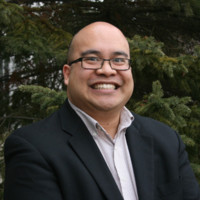
Eric Meliton s a thought leader and industry conduit with over 20 years of strategic experience, which includes analyzing cleantech trends, execution of sustainability-themed objectives, and strengthening of stakeholder and governmental relationships. He has worked in the water industry for over 18 years in roles focused on public private partnerships, strategic decision-making, manufacturing best practices, and operational efficiency. Eric’s role at Laurier is to provide sustainability leadership in a collaborative, multi-campus environment in Brantford, Kitchener, Milton, and Waterloo.
Free for all Attendees. Please register.
https://www.eventbrite.ca/e/summit-after-party-queeraoke-tickets-1335096512609?aff=oddtdtcreator